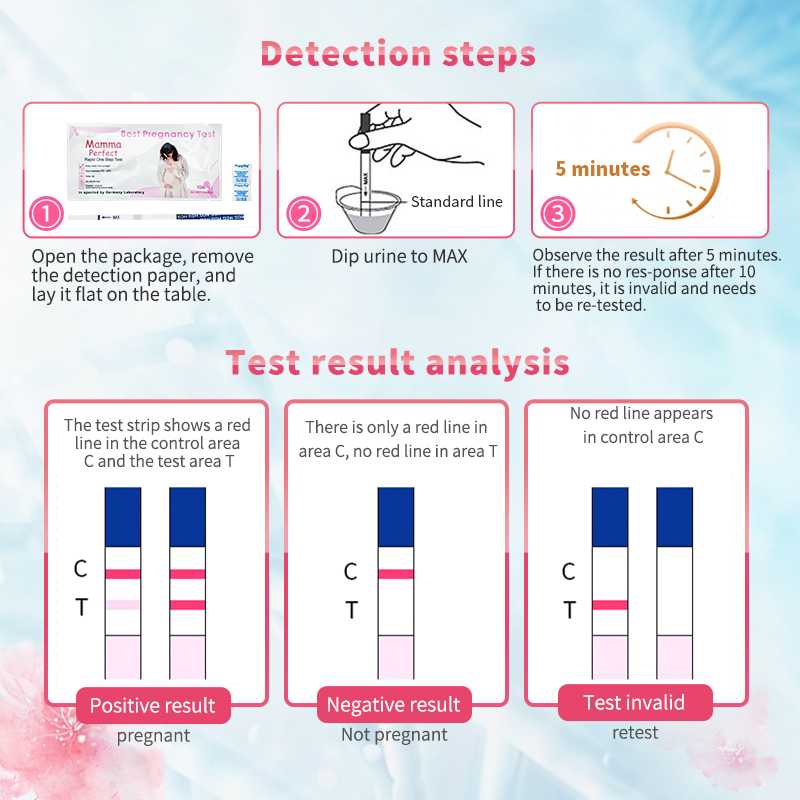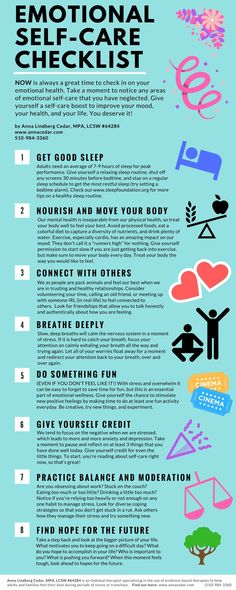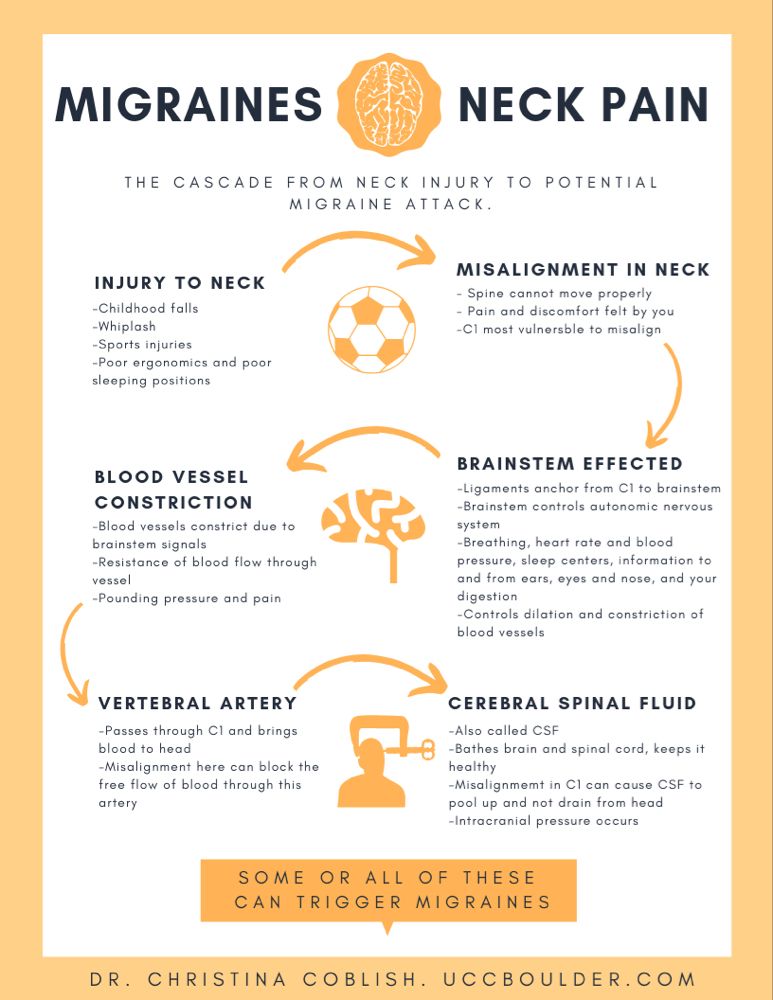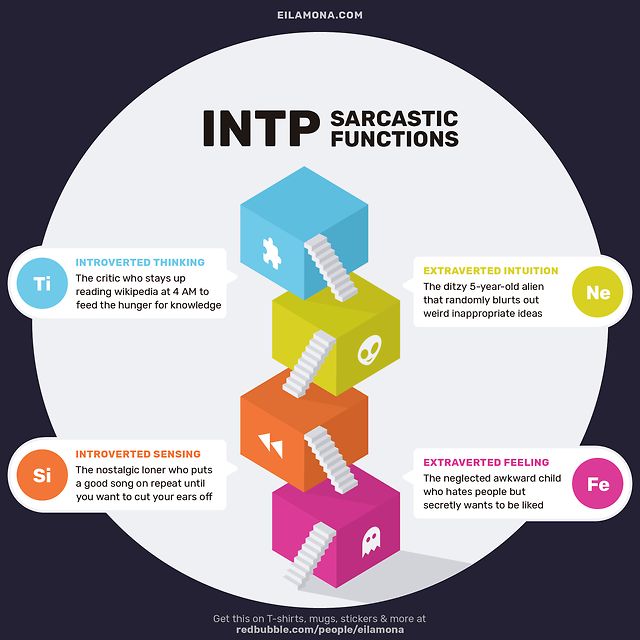Control personality disorder symptoms
Is Being Controlling a Personality Disorder?
When one is hurt by the world—initially by our parents or caretaking environment—it is a natural human reaction to try to control our external environment. Having a controlling personality is not considered to be a personality disorder; however, contemporary psychodynamic theory and practice see DMS-V personality disorders as being environmental as opposed to purely psychiatric (biological and physiological) conditions. In that sense, a personality disorder is designed defensively to control the environment, and in a social sense, other people are the environment. That quality itself is a central ingredient in a person who may have a controlling personality.
Each personality disorder could, under a particular lens, match up with someone’s controlling personality. We can take a look at how might that control manifests in various major personality disorders:
Borderline: Environmental Control
The individual with borderline personality will control the environment by creating constant disruption, perceiving it (you, me, whomever) in one instance as all good and the next as all bad. Distortions in the experience of self and others put the control in the hands of the borderline condition and person, and as a particular relationship continues, the borderline disordered person is more than capable of controlling others largely because those others are attempting to decrease the reactions of said borderline. This can look—and be—very control freakish.
Narcissistic: Perception Control
The narcissistic person controls his or her perceptions and experiences of self and others by cutting themselves off from relating to others (through an inability to empathize) and thereby limits the value of others… thereby not exposing her or himself to hurt or disappointment. By limiting the value of others, through self-focus/absorption, the narcissist limits her or his investment in others and so controls the impact of the inevitable abandonment and rejection, which the narcissist tends to repeat.
Paranoid: Environmental and Perception Control
Symptoms of paranoid personality disorder include chronic, pervasive distrust of other people; suspicion of being deceived or exploited by others, including friends, family, and partners; angry outbursts in response to deception; and cold, secretive, or jealous behavior.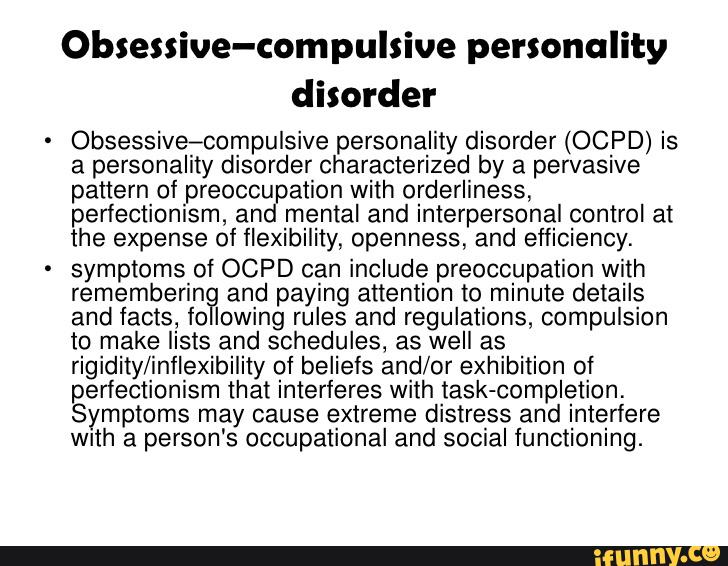 This controls not only one’s perception of others, it “controls” the environment (other people) by having them take the perceptions of the paranoid person less seriously—which can create a vicious cycle where the paranoid person is indeed treated with less respect and perhaps even more animosity or even apathy.
This controls not only one’s perception of others, it “controls” the environment (other people) by having them take the perceptions of the paranoid person less seriously—which can create a vicious cycle where the paranoid person is indeed treated with less respect and perhaps even more animosity or even apathy.
Obsessive-Compulsive: Anxiety Control
The obsessive-compulsive personality is characterized by a preoccupation with orderliness, perfection, and control of relationships. The individual controls her or his anxiety by shifting it into her or his thinking (obsessive) and then acting it out (compulsion). In this way, anxiety bypasses awareness and is played out in behavior.
In each case, having a controlling personality is a factor—a symptom—but not the disorder itself. The personality disorder can be seen as an attempt at controlling the environment. When whatever factors are accounted for (social/interpersonal/actual), it very well may be the case that a personality disorder is the remnant of coping mechanisms one needed to survive one’s early development. Tending towards a controlling personality is often a central part of that attempt: as it is an attempt to control what feels like an out-of-control and unsafe world.
Tending towards a controlling personality is often a central part of that attempt: as it is an attempt to control what feels like an out-of-control and unsafe world.
Personality disorders - Symptoms and causes
Overview
A personality disorder is a type of mental disorder in which you have a rigid and unhealthy pattern of thinking, functioning and behaving. A person with a personality disorder has trouble perceiving and relating to situations and people. This causes significant problems and limitations in relationships, social activities, work and school.
In some cases, you may not realize that you have a personality disorder because your way of thinking and behaving seems natural to you. And you may blame others for the challenges you face.
Personality disorders usually begin in the teenage years or early adulthood. There are many types of personality disorders. Some types may become less obvious throughout middle age.
Products & Services
- Book: Mayo Clinic Family Health Book, 5th Edition
- Newsletter: Mayo Clinic Health Letter — Digital Edition
Symptoms
Types of personality disorders are grouped into three clusters, based on similar characteristics and symptoms.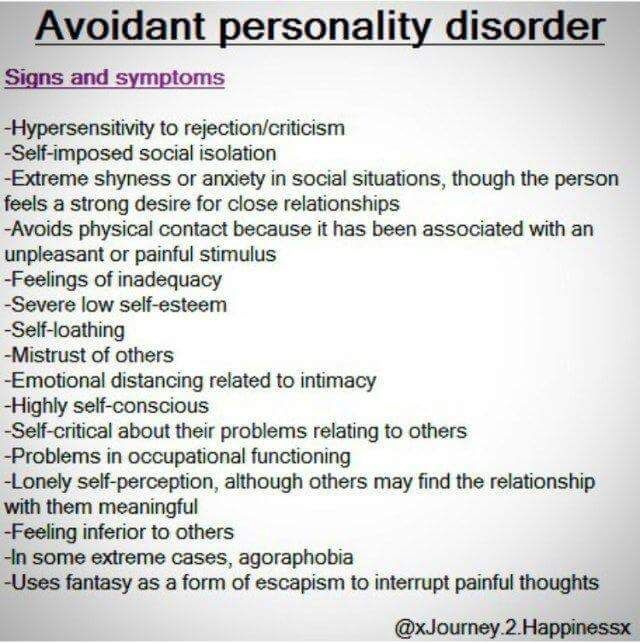 Many people with one personality disorder also have signs and symptoms of at least one additional personality disorder. It's not necessary to exhibit all the signs and symptoms listed for a disorder to be diagnosed.
Many people with one personality disorder also have signs and symptoms of at least one additional personality disorder. It's not necessary to exhibit all the signs and symptoms listed for a disorder to be diagnosed.
Cluster A personality disorders
Cluster A personality disorders are characterized by odd, eccentric thinking or behavior. They include paranoid personality disorder, schizoid personality disorder and schizotypal personality disorder.
Paranoid personality disorder
- Pervasive distrust and suspicion of others and their motives
- Unjustified belief that others are trying to harm or deceive you
- Unjustified suspicion of the loyalty or trustworthiness of others
- Hesitancy to confide in others due to unreasonable fear that others will use the information against you
- Perception of innocent remarks or nonthreatening situations as personal insults or attacks
- Angry or hostile reaction to perceived slights or insults
- Tendency to hold grudges
- Unjustified, recurrent suspicion that spouse or sexual partner is unfaithful
Schizoid personality disorder
- Lack of interest in social or personal relationships, preferring to be alone
- Limited range of emotional expression
- Inability to take pleasure in most activities
- Inability to pick up normal social cues
- Appearance of being cold or indifferent to others
- Little or no interest in having sex with another person
Schizotypal personality disorder
- Peculiar dress, thinking, beliefs, speech or behavior
- Odd perceptual experiences, such as hearing a voice whisper your name
- Flat emotions or inappropriate emotional responses
- Social anxiety and a lack of or discomfort with close relationships
- Indifferent, inappropriate or suspicious response to others
- "Magical thinking" — believing you can influence people and events with your thoughts
- Belief that certain casual incidents or events have hidden messages meant only for you
Cluster B personality disorders
Cluster B personality disorders are characterized by dramatic, overly emotional or unpredictable thinking or behavior.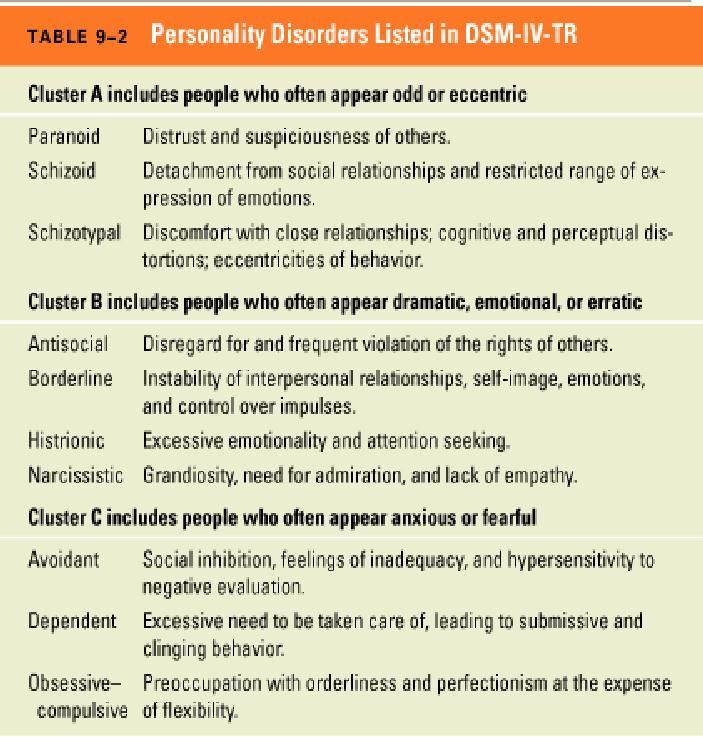 They include antisocial personality disorder, borderline personality disorder, histrionic personality disorder and narcissistic personality disorder.
They include antisocial personality disorder, borderline personality disorder, histrionic personality disorder and narcissistic personality disorder.
Antisocial personality disorder
- Disregard for others' needs or feelings
- Persistent lying, stealing, using aliases, conning others
- Recurring problems with the law
- Repeated violation of the rights of others
- Aggressive, often violent behavior
- Disregard for the safety of self or others
- Impulsive behavior
- Consistently irresponsible
- Lack of remorse for behavior
Borderline personality disorder
- Impulsive and risky behavior, such as having unsafe sex, gambling or binge eating
- Unstable or fragile self-image
- Unstable and intense relationships
- Up and down moods, often as a reaction to interpersonal stress
- Suicidal behavior or threats of self-injury
- Intense fear of being alone or abandoned
- Ongoing feelings of emptiness
- Frequent, intense displays of anger
- Stress-related paranoia that comes and goes
Histrionic personality disorder
- Constantly seeking attention
- Excessively emotional, dramatic or sexually provocative to gain attention
- Speaks dramatically with strong opinions, but few facts or details to back them up
- Easily influenced by others
- Shallow, rapidly changing emotions
- Excessive concern with physical appearance
- Thinks relationships with others are closer than they really are
Narcissistic personality disorder
- Belief that you're special and more important than others
- Fantasies about power, success and attractiveness
- Failure to recognize others' needs and feelings
- Exaggeration of achievements or talents
- Expectation of constant praise and admiration
- Arrogance
- Unreasonable expectations of favors and advantages, often taking advantage of others
- Envy of others or belief that others envy you
Cluster C personality disorders
Cluster C personality disorders are characterized by anxious, fearful thinking or behavior.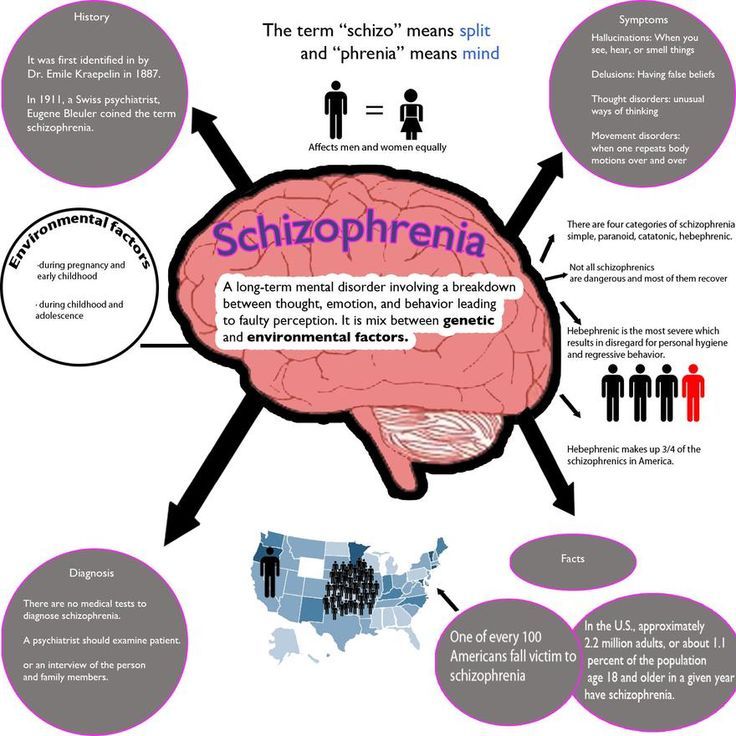 They include avoidant personality disorder, dependent personality disorder and obsessive-compulsive personality disorder.
They include avoidant personality disorder, dependent personality disorder and obsessive-compulsive personality disorder.
Avoidant personality disorder
- Too sensitive to criticism or rejection
- Feeling inadequate, inferior or unattractive
- Avoidance of work activities that require interpersonal contact
- Socially inhibited, timid and isolated, avoiding new activities or meeting strangers
- Extreme shyness in social situations and personal relationships
- Fear of disapproval, embarrassment or ridicule
Dependent personality disorder
- Excessive dependence on others and feeling the need to be taken care of
- Submissive or clingy behavior toward others
- Fear of having to provide self-care or fend for yourself if left alone
- Lack of self-confidence, requiring excessive advice and reassurance from others to make even small decisions
- Difficulty starting or doing projects on your own due to lack of self-confidence
- Difficulty disagreeing with others, fearing disapproval
- Tolerance of poor or abusive treatment, even when other options are available
- Urgent need to start a new relationship when a close one has ended
Obsessive-compulsive personality disorder
- Preoccupation with details, orderliness and rules
- Extreme perfectionism, resulting in dysfunction and distress when perfection is not achieved, such as feeling unable to finish a project because you don't meet your own strict standards
- Desire to be in control of people, tasks and situations, and inability to delegate tasks
- Neglect of friends and enjoyable activities because of excessive commitment to work or a project
- Inability to discard broken or worthless objects
- Rigid and stubborn
- Inflexible about morality, ethics or values
- Tight, miserly control over budgeting and spending money
Obsessive-compulsive personality disorder is not the same as obsessive-compulsive disorder, a type of anxiety disorder.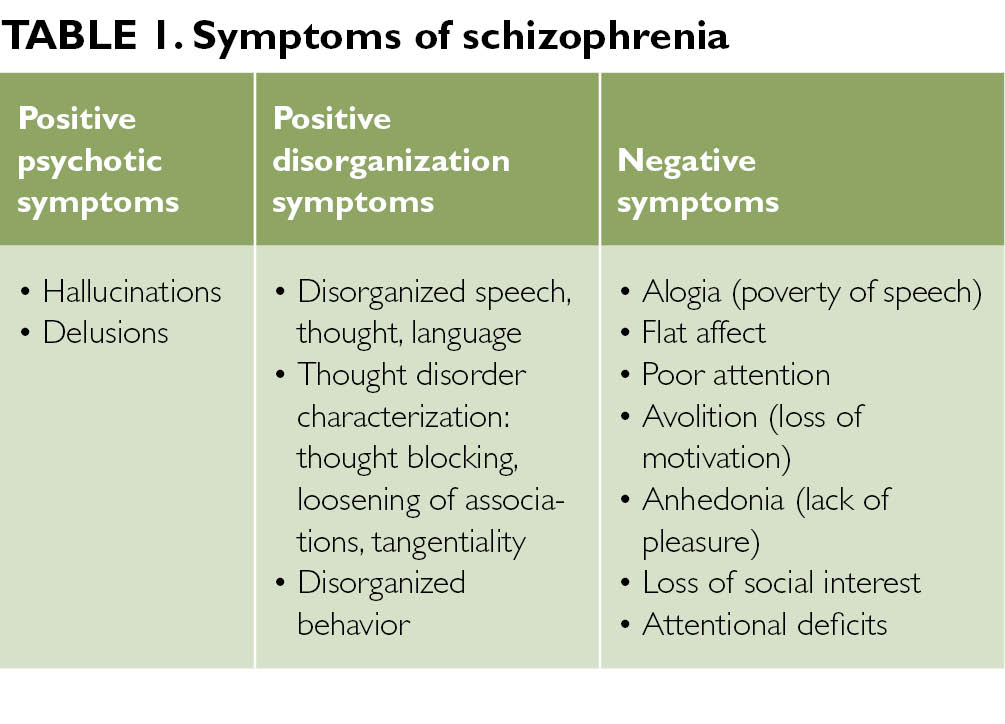
When to see a doctor
If you have any signs or symptoms of a personality disorder, see your doctor or other primary care professional or a mental health professional. Untreated, personality disorders can cause significant problems in your life that may get worse without treatment.
Request an Appointment at Mayo Clinic
From Mayo Clinic to your inbox
Sign up for free, and stay up to date on research advancements, health tips and current health topics, like COVID-19, plus expertise on managing health.
To provide you with the most relevant and helpful information, and understand which
information is beneficial, we may combine your email and website usage information with
other information we have about you. If you are a Mayo Clinic patient, this could
include protected health information. If we combine this information with your protected
health information, we will treat all of that information as protected health
information and will only use or disclose that information as set forth in our notice of
privacy practices. You may opt-out of email communications at any time by clicking on
the unsubscribe link in the e-mail.
You may opt-out of email communications at any time by clicking on
the unsubscribe link in the e-mail.
Causes
Personality is the combination of thoughts, emotions and behaviors that makes you unique. It's the way you view, understand and relate to the outside world, as well as how you see yourself. Personality forms during childhood, shaped through an interaction of:
- Your genes. Certain personality traits may be passed on to you by your parents through inherited genes. These traits are sometimes called your temperament.
- Your environment. This involves the surroundings you grew up in, events that occurred, and relationships with family members and others.
Personality disorders are thought to be caused by a combination of these genetic and environmental influences. Your genes may make you vulnerable to developing a personality disorder, and a life situation may trigger the actual development.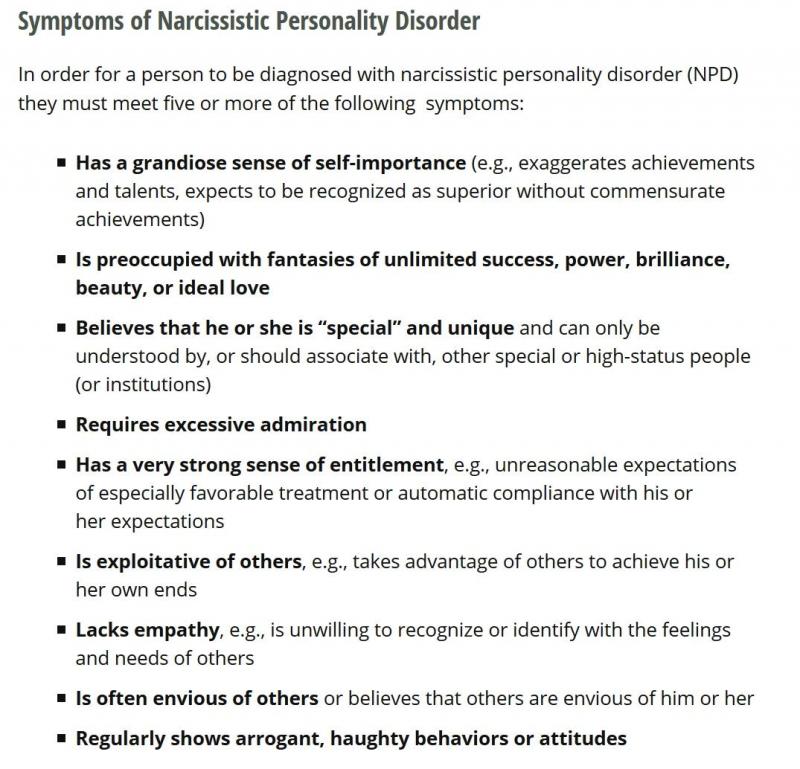
Risk factors
Although the precise cause of personality disorders is not known, certain factors seem to increase the risk of developing or triggering personality disorders, including:
- Family history of personality disorders or other mental illness
- Abusive, unstable or chaotic family life during childhood
- Being diagnosed with childhood conduct disorder
- Variations in brain chemistry and structure
Complications
Personality disorders can significantly disrupt the lives of both the affected person and those who care about that person. Personality disorders may cause problems with relationships, work or school, and can lead to social isolation or alcohol or drug abuse.
By Mayo Clinic Staff
Related
Associated Procedures
Products & Services
Emotional personality disorder - treatment and rehabilitation at the Allianz Central Medical Health Center
Emotionally unstable (labile) personality disorder is hyperexcitability, impulsivity, low ability to self-control and emotional imbalance.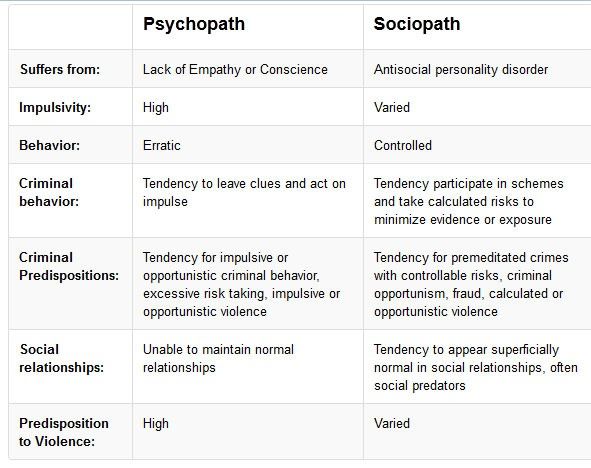 Like other personality disorders, it is more of a character pathology ("severe character") rather than a disease. An experienced psychotherapist can help with the disorder.
Like other personality disorders, it is more of a character pathology ("severe character") rather than a disease. An experienced psychotherapist can help with the disorder.
Important
"Severe character", the inability to cope with one's emotions is a reason to seek help from a psychotherapist. nine0003
In another way it is called aggressive, epileptoid, excitable, explosive personality disorder. Sometimes doctors treat it as two separate disorders—impulsive personality disorder and borderline personality disorder.
A common feature of people with both variants of emotionally unstable personality disorder is that it is difficult for them to restrain themselves, obey norms and rules due to weak self-control and impulsivity. Character traits make it difficult to establish and maintain contacts with others. Treatment by a psychotherapist for such people is an opportunity to accept the peculiarities of their psyche and learn to live in harmony with others.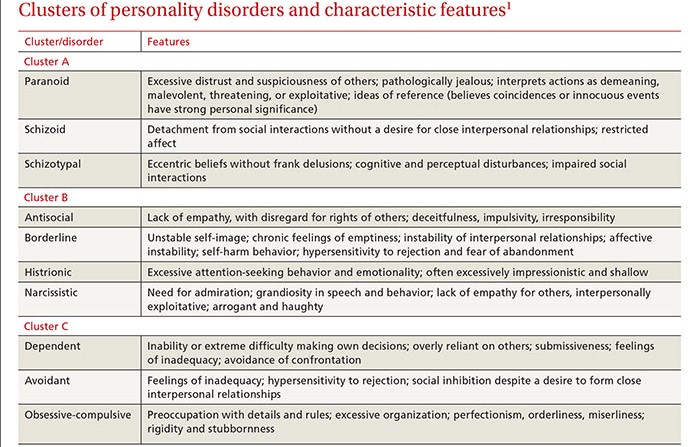 nine0003
nine0003
Symptoms of epileptoid personality disorder
If we talk about the classification of emotionally unstable personality disorder, ICD-10 divides it into two subspecies:
- Impulsive.
- Border.
An emotionally unstable personality disorder of the impulsive type is characterized by severe emotional lability (frequent unreasonable mood changes), a tendency to impulsive acts and aggressive outbursts with an inability to restrain. People with this disorder have a hard time with criticism and censure. nine0003
Epileptoids are characterized by jealousy, suspicion, manipulation, irritability and outbursts of anger.
For an emotionally unstable personality disorder of the borderline type, aggressive behavior towards others is less characteristic, but such people are prone to self-harm, up to suicidal acts. Learn more about borderline disorder.
According to ICD-10, a disorder is characterized by common features of a personality disorder and specific features.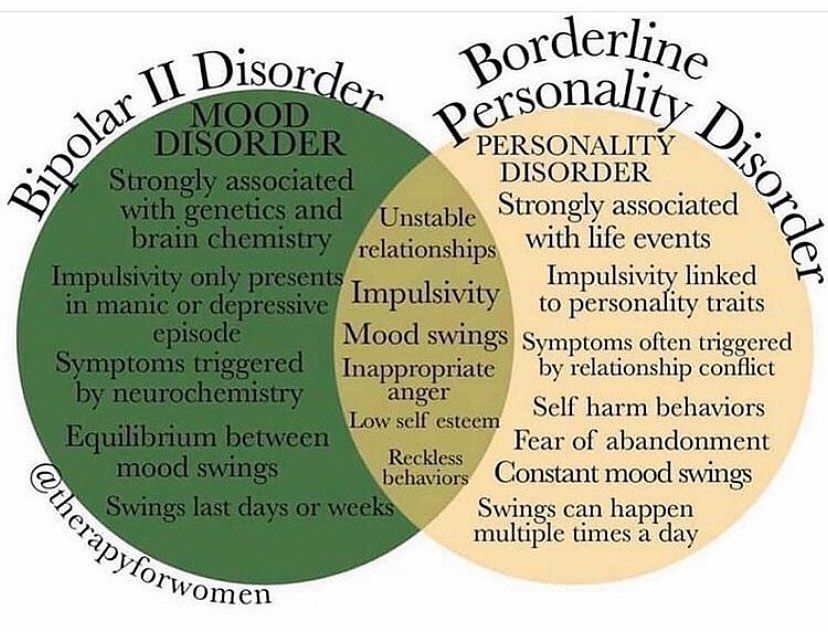 The general criteria are as follows: nine0003
The general criteria are as follows: nine0003
- begins to appear in childhood and adolescence, persists into adulthood;
- it is difficult to distinguish clear phases of recovery/exacerbation;
- character traits make it difficult to communicate with relatives and strangers, do not allow to take place professionally;
- a person is often self-centered, incapable of empathy (sympathy for other people), constantly striving for pleasure.
Specific symptoms of the impulsive (explosive) type of emotionally unstable personality disorder: nine0003
- Impulsivity in thoughts and actions.
- Low ability to self-control.
- Outbursts of anger.
- Tendency to cruel and asocial acts.
- Intolerance to censure and criticism.
To diagnose the impulsive type of emotionally unstable personality disorder, the psychotherapist talks in detail with the client.
Differential diagnosis is carried out with other personality disorders (borderline, hysterical), as well as with epilepsy.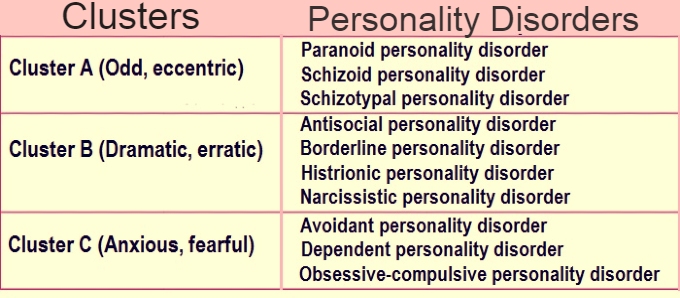 For this, a pathopsychological study is used (performed by a clinical psychologist), EEG, Neurotest. nine0003
For this, a pathopsychological study is used (performed by a clinical psychologist), EEG, Neurotest. nine0003
An integrated approach to diagnosis is necessary so that the doctor can prescribe the most effective treatment for this person.
Emotionally unstable personality disorder - treatment
People with emotionally unstable personality disorder are especially in dire need of the help of a psychotherapist. A specialist can teach them to control their emotions and prevent the negative impact of emotional outbursts on others (with impulsive disorder) and on the person himself (with borderline personality disorder). nine0003
Labile personality disorder is described as one of the most difficult diagnoses to treat. Establishing contact with a person who suffers from an emotionally unstable personality disorder is not an easy task for a psychotherapist. Inexperienced professionals avoid a strong alliance with such patients so as not to lose their own peace of mind.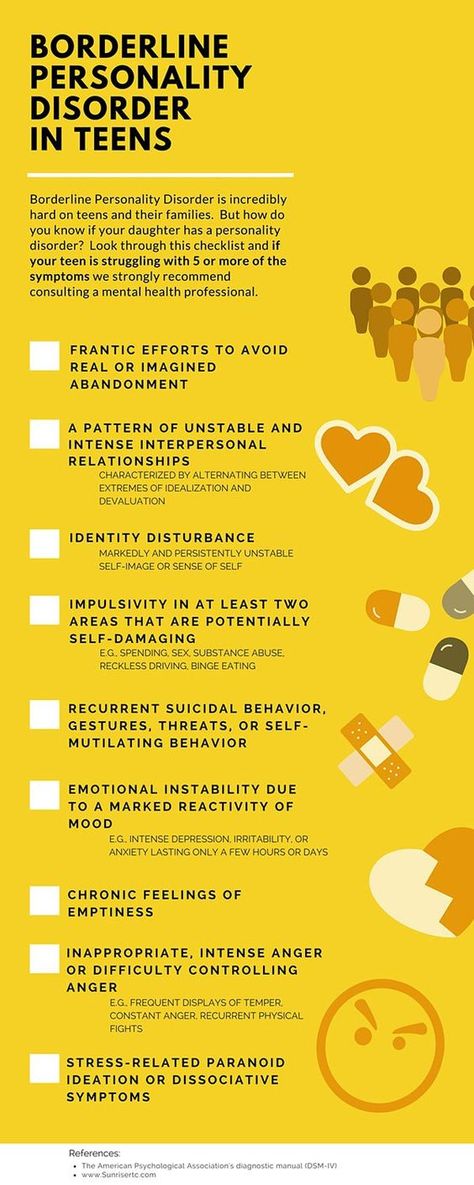
But at the same time, it is important to remember that a personality disorder is not a disease, the patient does not have damage to the nervous system. Therefore, with proper treatment, it achieves serious positive results. People with borderline and aggressive personality disorders should be treated by an experienced psychotherapist. nine0003
Important
Psychotherapy is the main non-drug treatment for mental disorders. Unlike medicines that eliminate symptoms, it works with the cause - it allows you to achieve a long-term, lasting result.
The main treatment for emotional personality disorder is psychotherapy. Drug treatment is not used in all cases. Medication support may sometimes be needed if the personality disorder is co-occurring with other illnesses, such as depression. nine0003
The most effective techniques when working with people who suffer from emotionally labile personality disorder are cognitive behavioral therapy and dialectical behavioral therapy. They help patients become aware of the thoughts and feelings that influence their actions and teach them to control themselves.
They help patients become aware of the thoughts and feelings that influence their actions and teach them to control themselves.
Subject to all the recommendations of the doctor and, most importantly, the desire of the patient to interact with the psychotherapist, the therapy gives a lasting positive effect. At the same time, the specialist does not seek to change the patient's personality, but helps to accept oneself and learn to live in harmony with oneself and others. nine0003
Diagnosis of anancaste personality disorder, treatment of perfectionism at the Allianz Central Medical Health Center
Anancaste (obsessive-compulsive, psychasthenic) personality disorder is a variant of a personality disorder characterized by increased anxiety and suspiciousness, fixation on details, perfectionism, rigidity of thinking, periodic obsessive thoughts (obsessions) and actions (compulsions).
It is necessary to distinguish between the concepts of "obsessive-compulsive personality disorder" and "obsessive-compulsive disorder".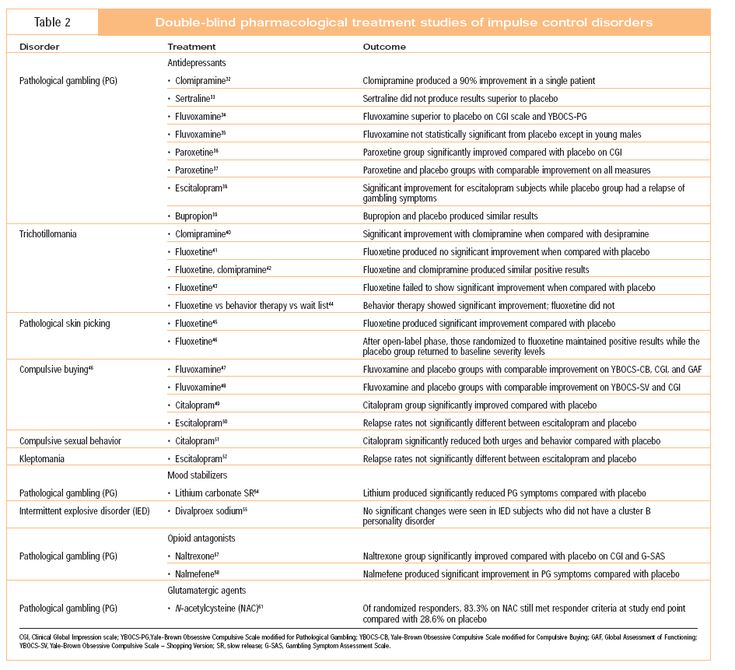 The first refers to the pathology of character development and has the distinctive features of personality disorders. The second term refers to a specific disease that can develop in any type of person. nine0003
The first refers to the pathology of character development and has the distinctive features of personality disorders. The second term refers to a specific disease that can develop in any type of person. nine0003
Two conditions must be met for a diagnosis of anancaste personality disorder. First, the presence of general criteria for a personality disorder. Second, the presence of three or more of the following symptoms:
- Unreasonable anxiety and excessive caution are eternal torments of choice even when making simple and insignificant decisions.
- Maladaptive perfectionism is an excessive desire for perfection that interferes with the fulfillment of tasks. In pursuit of the ideal, the anancast "gets stuck" in the process, constantly postponing the completion of the case due to improvements and improvements to the already completed part of the work. nine0018
- Fixation on details and various ways of structuring (detailed lists, schedules, graphs, etc.)
- Extreme pedantry and adherence to social rules and conventions.
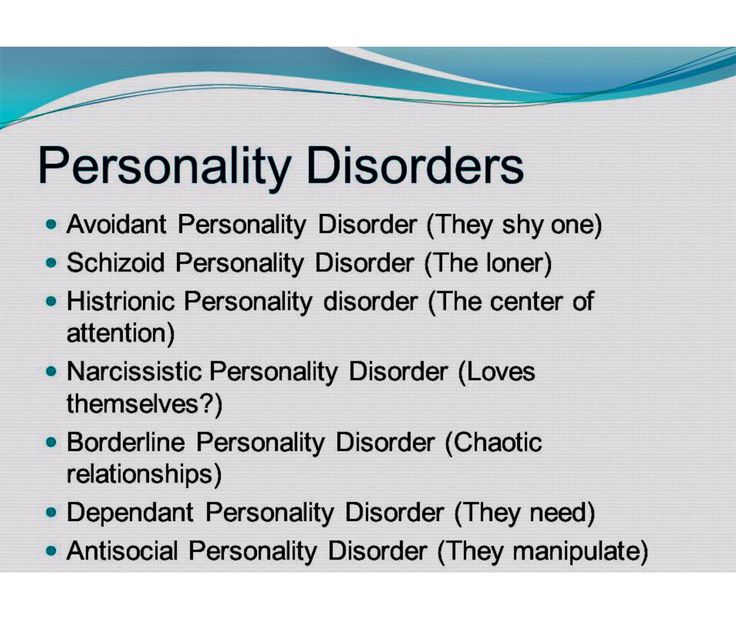
- Rigidity (stiffness) of thinking.
- Excessive conscientiousness and compulsion in work, because of which personal relationships (marital, friendly), leisure and recreation suffer.
- Refusal to cooperate or delegate duties to other people unless they are willing to do the job in exactly the same way. nine0018
- Presence of obsessive thoughts, drives and actions. Actions can be simple stereotypes of gestures and facial expressions, such as sniffing, tics, "clicking" fingers; or more complex rituals, such as walking a certain intricate route every day, or wearing only certain clothes on a certain day of the week. It must be emphasized that these thoughts and actions are not the result of a purposeful choice and are weakly amenable to self-control. Situations of impossibility to perform the ritual give rise to the strongest anxiety in the anancaste. nine0018
Causes and differential diagnosis
Currently, anancaste personality disorder is believed to have a genetic predisposition. However, the leading factor is the social factor, when, starting from early childhood, the child is in a situation of increased pressure and demands with a simultaneous ban on the manifestation of certain emotions. By puberty, the psyche formed under such conditions already has stable symptoms of psychasthenic personality disorder. nine0003
However, the leading factor is the social factor, when, starting from early childhood, the child is in a situation of increased pressure and demands with a simultaneous ban on the manifestation of certain emotions. By puberty, the psyche formed under such conditions already has stable symptoms of psychasthenic personality disorder. nine0003
It is important to understand
Although this disorder is not a disease, its symptoms are extremely difficult, if not impossible, to be consciously controlled. This is a deep, persistent deviation in personality development, due to which even seasoned, well-compensated people experience breakdowns, during which persuasion to "pull themselves together" and cope on their own is useless - at such moments, qualified help is simply needed.
It is necessary to differentiate psychasthenic personality disorder, first of all, from obsessive-compulsive disorder - a disease that has very similar symptoms, but fundamentally different dynamics, prognosis and treatment tactics.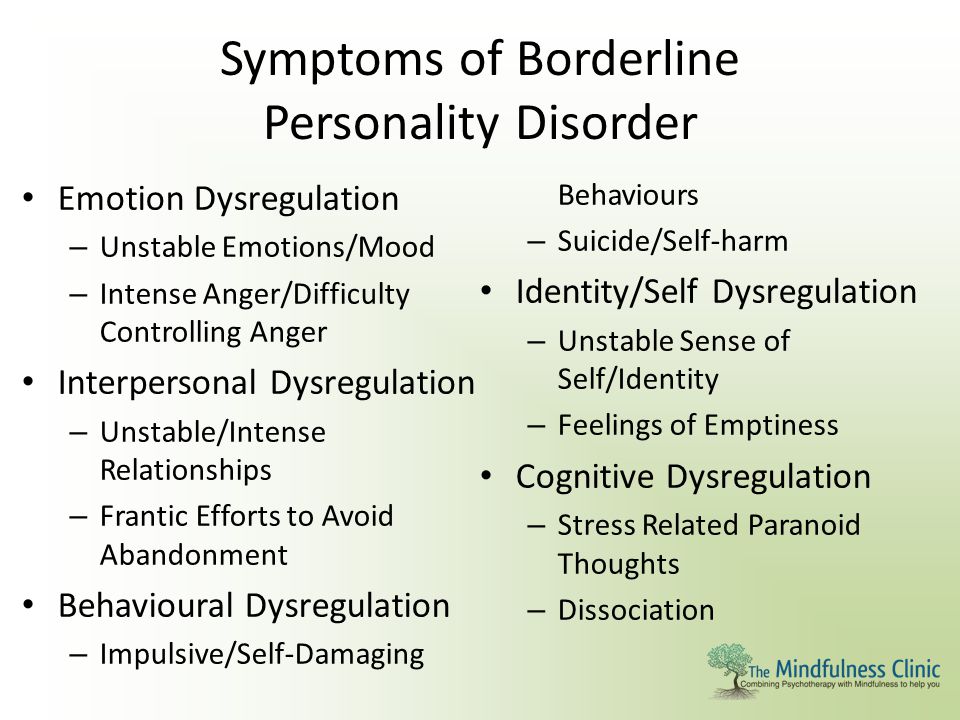 He also has many similar symptoms with autism, schizophrenia, epileptoid character accentuation, generalized anxiety disorder, organic brain pathology. To establish the correct diagnosis and prescribe treatment, taking into account the individual characteristics of the patient, it is necessary to contact a specialist. nine0003
He also has many similar symptoms with autism, schizophrenia, epileptoid character accentuation, generalized anxiety disorder, organic brain pathology. To establish the correct diagnosis and prescribe treatment, taking into account the individual characteristics of the patient, it is necessary to contact a specialist. nine0003
Treatment and prognosis
The prognosis for anancaste disorder is favorable. With proper treatment, it is possible to achieve stable compensation, during which anancasts live a full life.
Lack of treatment is fraught with frequent breakdowns, during which restraining mechanisms are “turned off” and emotions hidden for a long time break out to the surface like an awakened volcano. During these periods, there may be a need for drug therapy: neuroleptics, anxiolytics, antidepressants. The basis for this type of personality disorder is psychotherapeutic treatment. nine0003
In a state of mental compensation, people with an anancaste personality disorder have high professional suitability.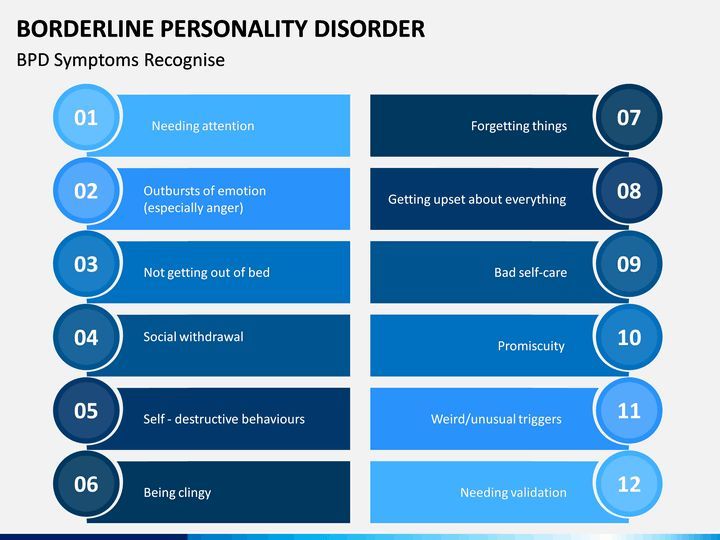 They are considered valuable and reliable employees, experts in their field. However, they achieve labor success at the expense of family and friendly relations. The reason for this is their pathological perfectionism, which extends not only to work, but also to personal relationships. High demands and little time for family and friends often jeopardize the relationship anancasters have with their loved ones. Therefore, in the course of maintenance therapy for psychasthenic personality disorder, one often has to solve the problem: “How to treat perfectionism?”. For this, individual psychotherapy, namely psychoanalysis, is successfully used, with the help of which it is possible to correct dysfunctional manifestations, make them more flexible and adaptive. nine0003
They are considered valuable and reliable employees, experts in their field. However, they achieve labor success at the expense of family and friendly relations. The reason for this is their pathological perfectionism, which extends not only to work, but also to personal relationships. High demands and little time for family and friends often jeopardize the relationship anancasters have with their loved ones. Therefore, in the course of maintenance therapy for psychasthenic personality disorder, one often has to solve the problem: “How to treat perfectionism?”. For this, individual psychotherapy, namely psychoanalysis, is successfully used, with the help of which it is possible to correct dysfunctional manifestations, make them more flexible and adaptive. nine0003
The Alliance Mental Health Center employs qualified psychotherapists who have effective methods for diagnosing and treating an anancaste personality disorder. Our specialists have many years of successful experience in this field.
